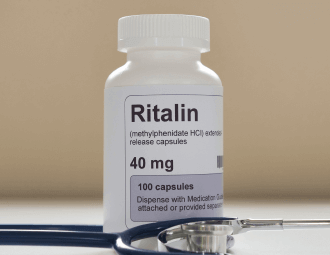Highlights
- In people with attention deficit hyperactivity disorder (ADHD), forgetting things is a common sign.
- Forgetfulness is common because people with ADHD have bad memories due to differences in brain chemistry and structures, which change the way they think and behave.
- Some common ADHD forgetfulness examples include neglecting daily tasks, missing deadlines and appointments, and misplacing essential items such as keys, phones, and wallets.
I’m sure you’ve opened the fridge and forgotten what you needed to fetch; it’s completely normal to forget minor things sometimes. It’s when you start forgetting to pick up your children from school, or miss deadlines repeatedly, that alarm bells should sound.
Unfortunately, ADHD does make you forgetful, but the good news is that it is manageable. Read on to get a better understanding of ADHD forgetfulness and a few tips and treatments to help you get back control of your memory.
If you think your forgetfulness might be ADHD-related, why not start with our free “Do I have ADHD?” quiz?
How ADHD Affects Memory
Let’s explore the interconnection between ADHD and memory.
As a result of
Short-Term Memory and Working Memory Challenges
It is well-known that most people with ADHD (
Working memory is thought to be made up of
- Central executive function, or ‘working’ component.
- Phonological short-term memory — the temporary “storage.” It is also used for rehearsal of language-based, verbal/auditory information.
- Visuospatial short-term memory — also the temporary “storage” that is used for rehearsal of visual and spatial information that cannot be coded verbally.
Here is a simple analogy:
Working memory | A busy restaurant kitchen |
Executive function | Think of it as the head chef who decides the menu, who is doing what, what priorities are, and making everything run smoothly. |
Phonological short-term memory | This is the chef’s assistant who shouts the food orders to the chef. |
Visuospatial short-term memory | It’s like picture recipe cards and a map of the kitchen layout. |
The effects of ADHD can include the following:
- The working memory deficits that affect executive function cause people with ADHD to prioritize tasks and multitask poorly; the “chef” is losing control of the kitchen.
- Short-term memory deficits might result in not knowing what information to focus on for the task at hand. For example, the “chef’s assistant” is distracted by the radio and starts singing songs instead of shouting food orders; instead of recipe cards, there are comic books.
The executive dysfunction also leads to thought overload and fatigue, which may cause something known as brain fog, making it more difficult to remember things.
Long-term Memory Challenges
When tested, long-term memory performance is poor in people with ADHD.
Think of long-term memory like a filing cabinet. Memory files that are taken from your short-term memory and stored in the cabinet; this is called ‘encoding.’ The memory file is then ready to be taken out (retrieved) again when needed.
Some reasons for long-term memory issues associated with ADHD include the following:
- Low Dopamine Activity. Dopamine is the brain’s feel-good and motivational messenger. Unfortunately,
dopamine activity is low in the ADHD brain[1] , which can also contribute to poor attention, decreased focus, and forgetfulness. - Sleep Issues. It is well-known that people with ADHD
have trouble with sleep[5] . Having a good night’s rest allows the brain to recharge, and without good-quality sleep, a tired brain will be forgetful.
What do these ADHD memory challenges look like in real life?
Common Examples of ADHD Forgetfulness
There are many everyday scenarios where ADHD forgetfulness shows itself, impacting life at home and work. Here are a few to look out for:
- Difficulty following instructions because of forgetting the sequence.
- Forgetting words mid-sentence when distracted.
- Misplacing important items such as keys, phones, and wallets.
- Missing deadlines and appointments.
- Leaving things at home, like documents or lunch.
- Neglecting daily tasks.
- Repeating stories after forgetting conversations.
- Not replying to messages or emails.
Differentiating Between Normal Forgetfulness and ADHD Memory Issues
As you age, it is normal for memory not to be so sharp anymore, even as early as your
Is there a family history of ADHD?
ADHD is
Is there a lifelong history of forgetfulness or absent-mindedness?
Sometimes adults have managed to mask ADHD symptoms, and even though it might only be diagnosed later in life, ADHD is something you are born with; usually, there are some mild signs and symptoms (low attention or high energy and impulsivity) since childhood.
But sometimes, ADHD forgetfulness can be extreme and manifest as more serious memory difficulties.
Memory Loss: How to Tell If It’s ADHD or Something Else?
Doctors have to decide whether memory problems are due to ADHD or another medical condition; the
- Learning disorder (in children with ADHD)
- Mental health disorders (depression and anxiety)
- Vitamin B12 deficiency
- Underactive thyroid
- Prescribed medication
- Elicit drug and alcohol abuse
- Head injury
- Brain infections
- Epilepsy
- Stroke
- Mild cognitive impairment (MCI) — the stage between normal aging and dementia
- Dementia
Many of the above conditions will have other characteristic symptoms or can be ruled out by imaging or laboratory tests.
Unfortunately, the diagnosis of ADHD is not done with a scan or blood tests; your healthcare provider will rely on asking questions and identifying symptoms that fit the
- Struggling with attention and difficulty focusing.
- Difficulty listening.
- Battling to follow instructions.
- Problems with organizing tasks.
- Avoiding or disliking complicated tasks.
- Losing important things.
- Being easily distracted.
- Forgetting daily activities.
- Feeling restless or ‘on the go.’
- Being loud and talking a lot.
- Difficulty waiting their turn.
People with inattentive type ADHD are at higher risk of poor memory recall; forgetfulness is one of the signs of low attention.

How to Stop Forgetting Things With ADHD: 10 Tips
The good news is that there are many techniques you can use to stop forgetting things if you have ADHD. These involve making lifestyle and routine changes and using organizational tools and tips.
1. Write Down Important Instructions
To retain information with ADHD, write down anything that has complicated steps; not everything needs to involve memorization, rather have instructions you can refer back to.
2. Designate a Place for Important Things
Having a bowl, table, or drawer in your entrance hall where you can place your keys, wallet, and phone in when you walk through the door will minimize the chances of losing these important items.
3. Write Lists, Use Calendars, and Set Alarms
To remember things with ADHD, sometimes you need reminders, so don’t be afraid to use them. It will avoid the common ‘out of sight, out of mind’ difficulties, sometimes referred to as object permanence, that result from poor working memory.
4. Avoid Multitasking
Multitasking often leads to feeling overwhelmed and ADHD paralysis, so don’t try to do everything at once. Rather, decide on the order of importance, and make a list; next, tackle tasks one by one, and doing this will help you not to let a task slip from your mind.

5. Try Memory Improvement Techniques
Because people with ADHD forget things, it is important for them to exercise their brains with working memory training. Improving memory is possible by learning new skills, reading, playing brain games, and self-testing.
6. Use Mnemonic Devices
These rely on vision and sound to remember things like acronyms, rhymes, imagery, breaking numbers up, or creating a story about something you need to remember.
7. Stick to Good Sleep Hygiene
Getting a good night’s sleep is one of the best things you can do to help poor memory if you have ADHD. People with ADHD are prone to sleep issues, and tiredness impacts focus and can worsen forgetfulness. To help your brain wind down:
- Avoid large meals and caffeine in the evening.
- Have the same bedtime every night.
- Avoid day-napping.
- Read or listen to calming music an hour before bedtime.
- Avoid television and screens.
- Make sure your room is cool and dark.
Sunlight helps to
8. Eat a Balanced Diet
In order to keep your brain functioning optimally, a healthy diet is essential. Importantly, avoid glucose spikes that can make you mentally exhausted by minimizing sugar and refined carbohydrates; instead, eat omega-rich foods, complex carbs, fruit, and vegetables.
9. Get Enough Exercise
10. Reduce Stress and Anxiety
Being anxious will only increase the ADHD forgetfulness tendency, so try to actively manage stress. You can achieve this with breathing exercises,
Professional Support and Treatment Options
If self-help strategies are not working for memory deficits in ADHD, seeing a doctor or therapist is a good next step.
- Cognitive-Behavioral Therapy. This is a type of talk therapy that helps you change feelings and behavior triggered by thoughts. By identifying the feelings related to a specific thought and changing those emotions, you can change your reaction. This decreases anxiety and distress, eventually improving focus.
- Medication. Does ADHD medication help with memory? Often, medication is needed to improve memory with ADHD, and your healthcare provider will decide if this is the appropriate option. Stimulants (methylphenidate and amphetamine-based medications) are the
first-line choice and work well in 70% of people[1] with ADHD to improve attention; improved focus will mean less forgetfulness.
So, how do you know if it’s time to see a mental health professional?
Seeking Professional Help
It is essential that you seek professional help if memory challenges and poor attention and focus are impacting your daily life and mental health. These days, this is easy to do with online ADHD treatment, so book your appointment today.
Frequently Asked Questions About ADHD Forgetfulness
Is forgetfulness a sign of ADHD?
Does ADHD forgetfulness get worse with age?
Does ADHD cause memory loss?
No, ADHD doesn’t cause memory loss, but it might impact memory with challenges and forgetfulness. This is because of poor working memory, which makes it difficult to prioritize tasks and multitask.
Can untreated ADHD lead to dementia?
Can ADHD mimic dementia?
Yes, severe ADHD forgetfulness and memory issues can mimic dementia. Doctors will differentiate between the two by taking a history, doing an examination and tests.
Can you have ADHD and good working memory?
Yes, you can have ADHD and good working memory, although good memory is fairly rare; about













